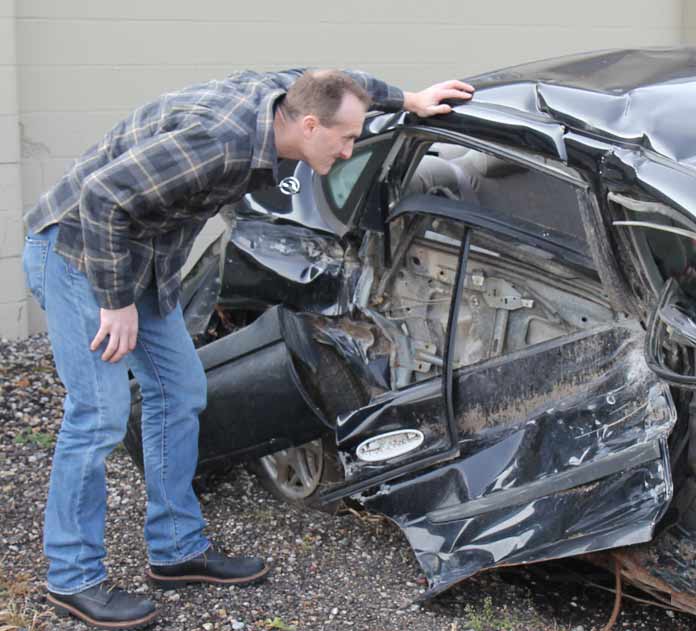If you were in a crash and you suffered broken or crushed bones, you may have a lawsuit for compensation.

Tibial Plateau Fracture
These are classified by the Schatzker classification:
- Lateral split – usually in younger patients, with no depression at the articular surface;
- Split with depression – typically older patients with osteoporosis;
- Pure lateral depression – without splitting through the articular surface;
- Pure medial depression – medial tibial plateau crumbles into fragments;
- Bicondylar – split fractures through both the medial and lateral tibial plateaus; and
- Split extends to metadiaphyseal region – severe stress fractures that result in separation of the tibial plateau from the underlying tibia.
Read more about a tibial plateau fracture.
Fibula Fracture
The fibula (also called the calf bone) is thinner than the adjoining tibula. Tibula fractures can include the following:
- Oblique – goes at an angle to the axis;
- Spiral – runs around the axis of the bone;
- Comminuted – has many relatively small fragments;
- Compound – breaks the skin.
Common Fractures
- Ankle and Foot
Lateral Malleolus
Medial Malleolus
Posterior Malleolus
Bimalleolar
Bimalleolar Equivalent
Trimalleolar
Calcaneus (Heel Bone)
Lisfranc (Midfoot)
Pilon (Bottom of the Shinbone (Tibia))
Talus (Small Bone Between Heal Bone and Leg Bones) - Toe and Forefoot
- Hip
Intracapsular
Intertrochanteric
Subtrochanteric - Pelvis
- Knee and Leg
Tibia
Tibial Plateau
Tibial Shaft
Proximal
Thighbone
Femoral Shaft - Shoulder, Arm, Elbow
Broken Collarbone (Clavical)
Distal Humerus
Shoulder Blade (Scapula)
Olecranon (Elbow)
Radial Head - Spine and Neck
Cervical
Thoracic and Lumbar Spine
Atlas
Axial
Burst
Floating Lateral Mass
Impation
Inferior Facet
Lateral Mass
Lower Lumbar
Occipital Condyle
Compression
Verteral - Hand and Wrist
Distal Radiuse (Colles’)
Scaphoid.